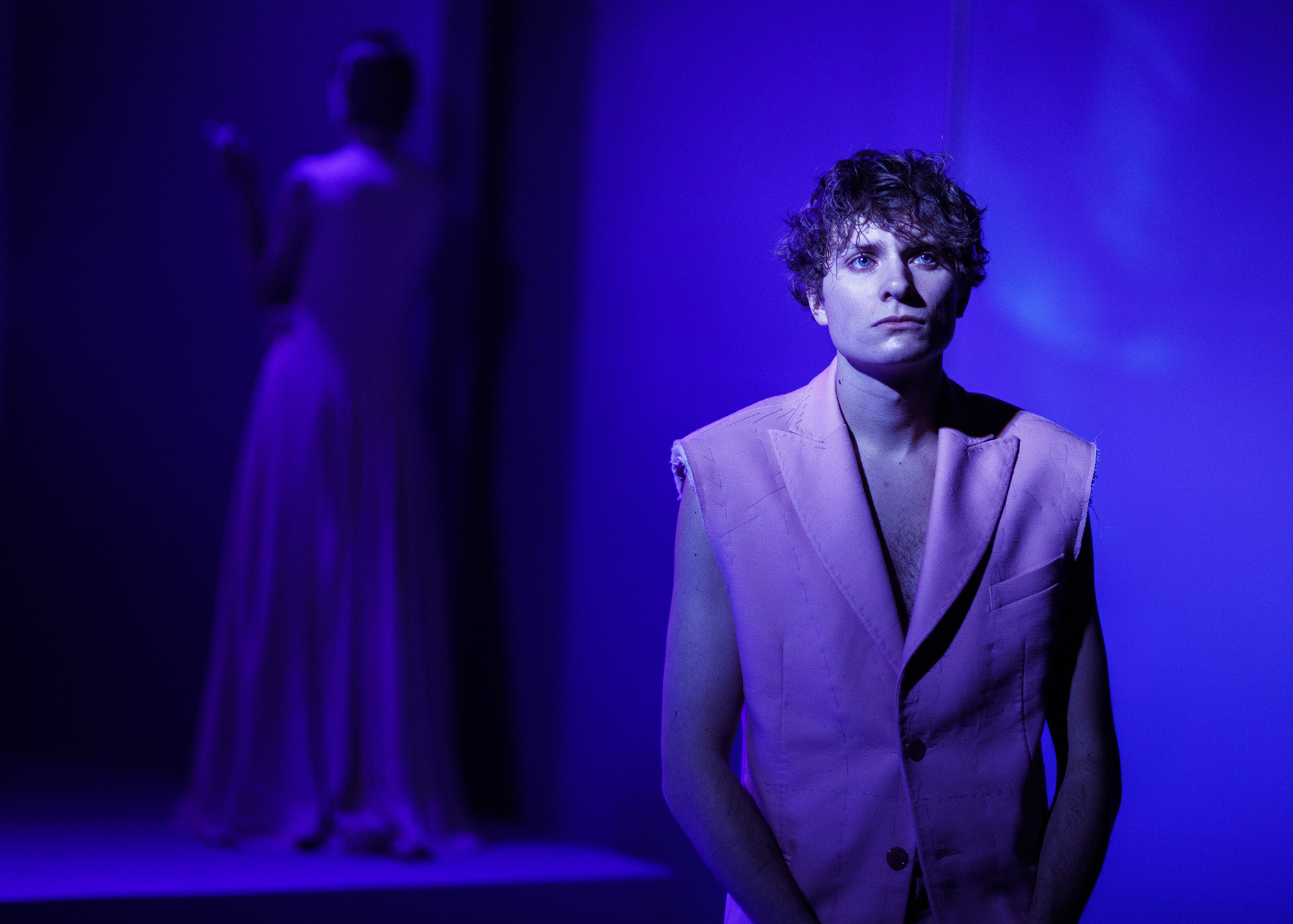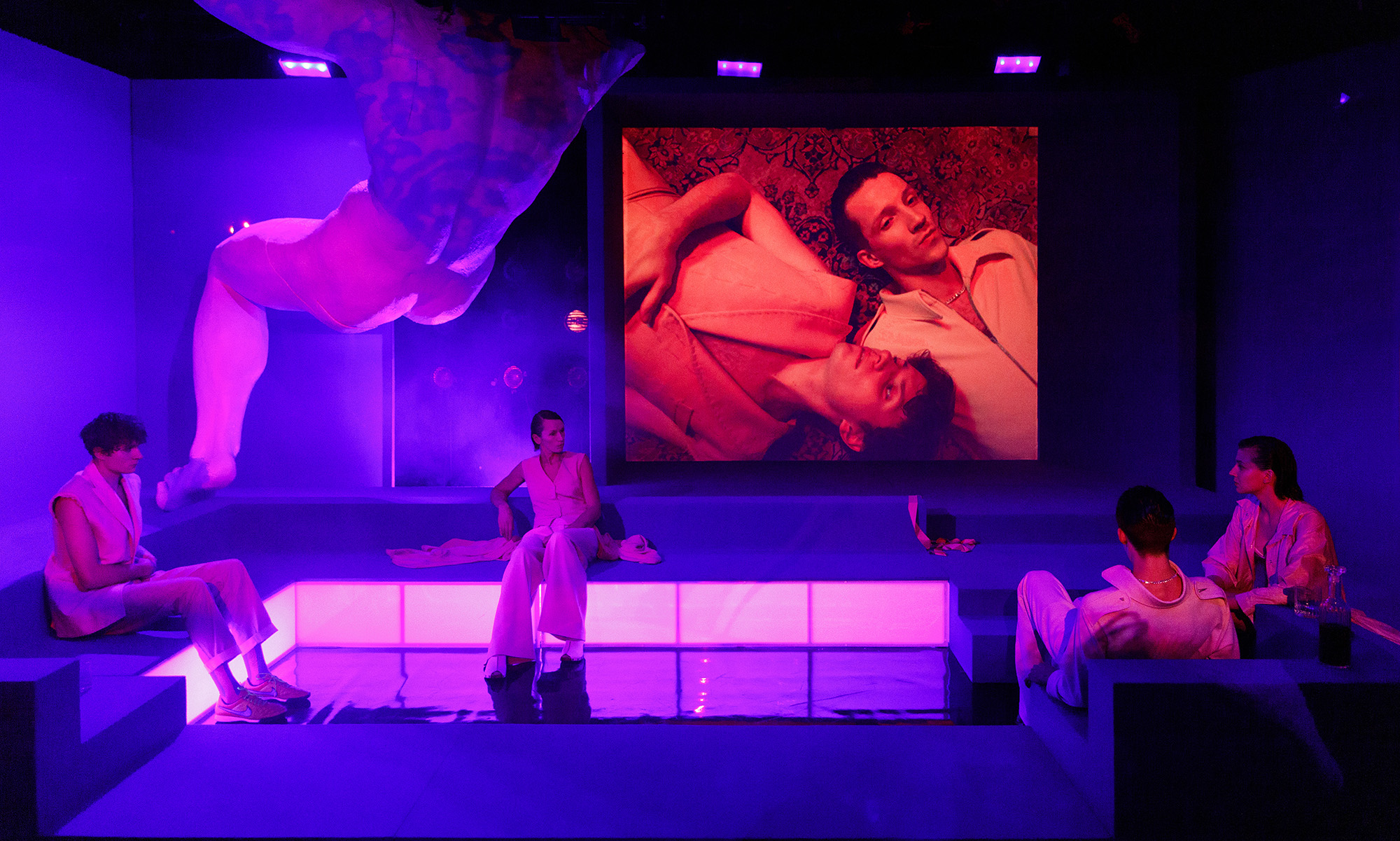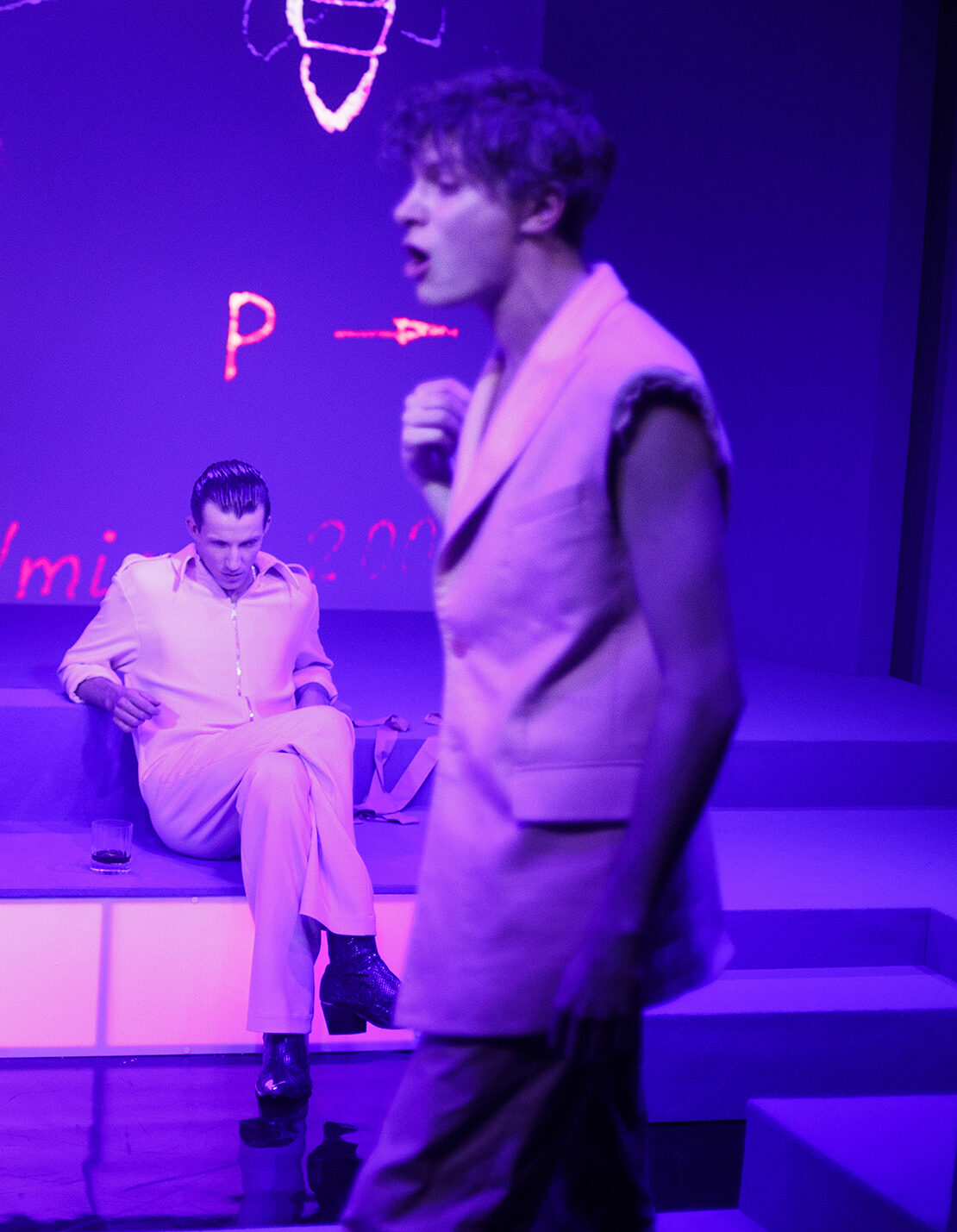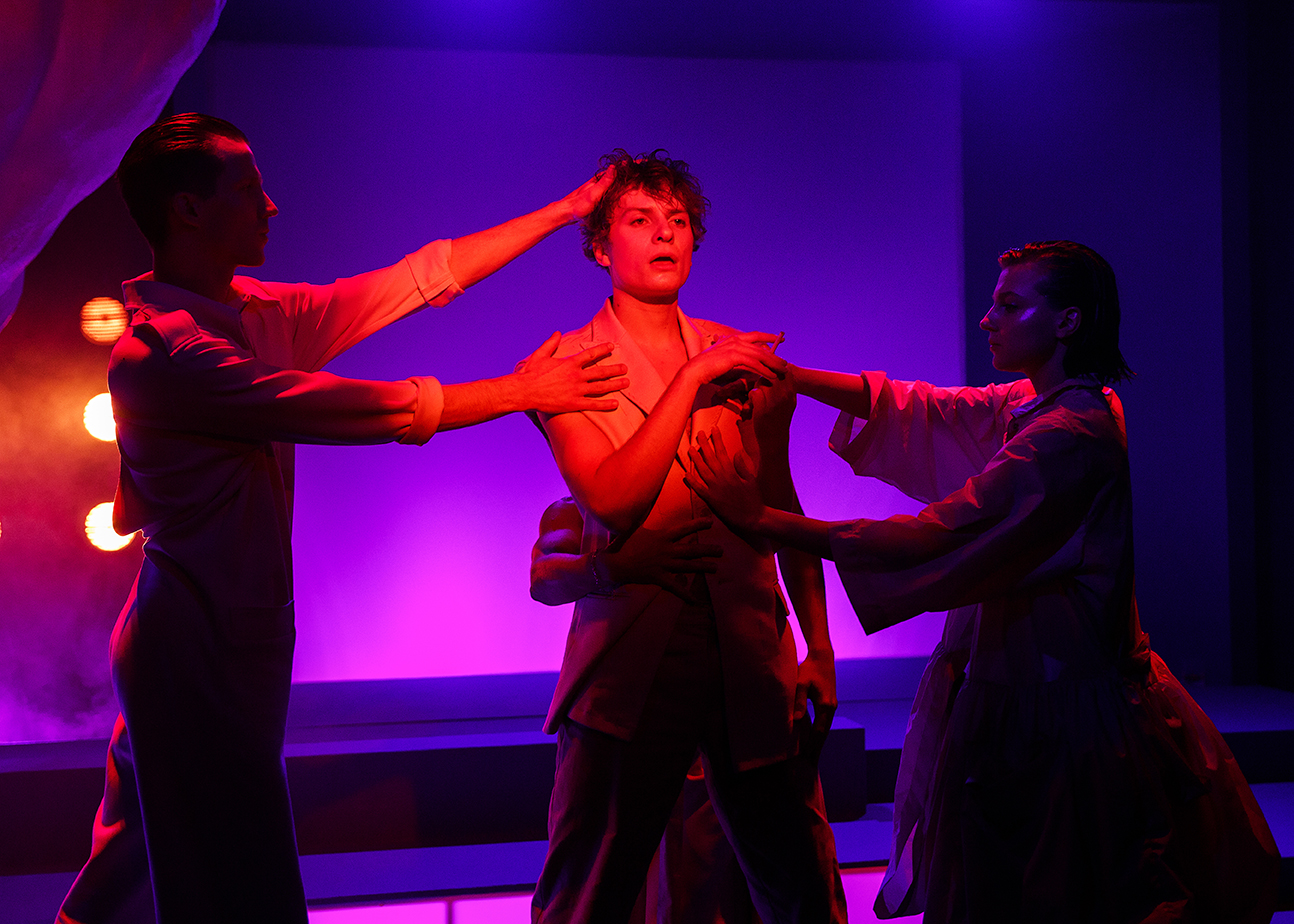The popular contemporary French writer Édouard Louis in his books – using an autobiographical and documentary style – describes his own experiences as an adolescent and a youth in a provincial French working class family from the lowest social strata. The writer characterizes his novel The End of Eddy as an autobiographic story of a young man’s formative development. The author depicts everyday life of the inhabitants of a small town shaken by the post-industrial downturn and its influence on young people who are coming of age there. One of them, Eddy, realizing his non-traditional sexual orientation, experiences hurtful bullying at school and hostile attitude of his parents… As he reflects on his own path from a statistical teenager to a famous Paris intellectual, E. Louis opens up some wounds of modern-day Europe and poses questions about a young person’s choices.
In his new production, the young director Naubertas Jasinskas seeks to convey themes which are personally sore to him. Born about the same time as the author of the novel and hailing from a province in North Lithuania, Jasinskas states: It is easy to perceive the images and living emotions created in the novel as one’s own life experiences. Even though between É. Louis and me, the director of the production, lies a considerable geographic distance, yet one can realize that life and mentality in Europe’s provinces are identical, regardless of geographical latitude and nationality. The very title, “The End of Eddy”, is twofold: it presupposes the end of a young man’s growing up in an unsuitable cultural, social, political space and a new beginning – the author seeks to break away as consciously as possible from his “former “I”. This wish can be seen as a very strong desire to get rid of the past and to consciously travel towards a kind of “awakening”.





